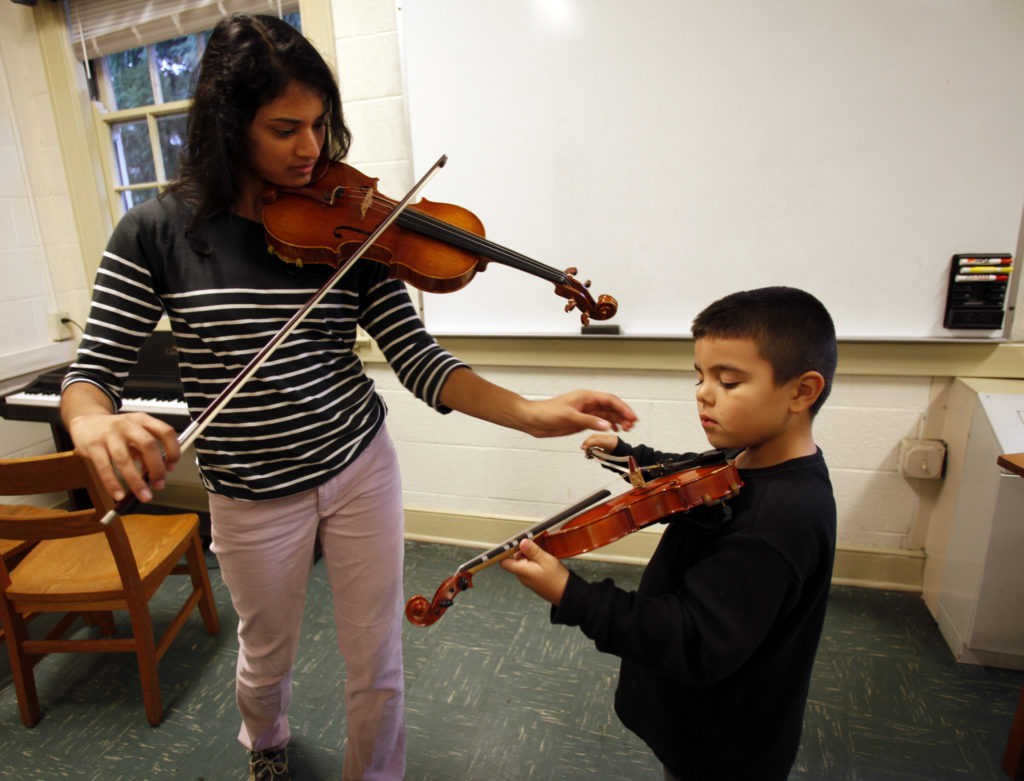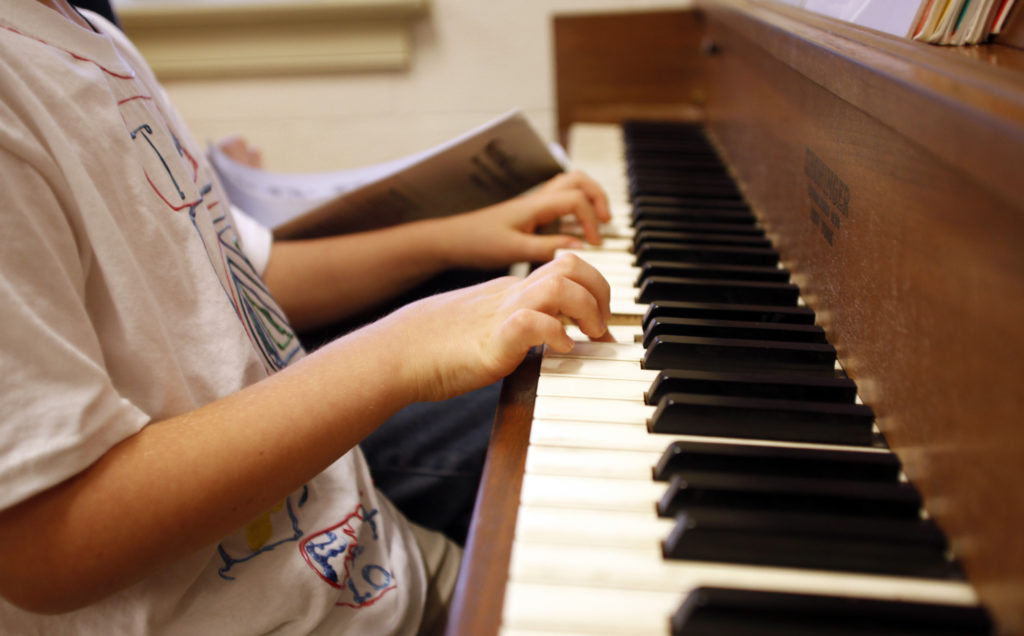The Importance of Musical Expression in Education
October 2, 2019
Everybody knows music has an incredible amount of influence on our lives and our world. It’s almost an elemental force in its own right. Although we all respond to music to a greater or lesser degree, most of us are not as familiar with the full scope of music’s value in an educational setting.
For many reasons, experiencing music early and often in life is a boon to our personal and even professional development. Here’s why.
1. Music Can Function Like a Pneumonic Device
Contrary to popular belief, creativity doesn’t interfere with learning – in fact, it enhances the learning process.
One study by Patricia Purnell-Webb and Craig Speelman indicated that students could effectively use some types of music, including instrumental arrangements of familiar songs, as pneumonic devices while reading. This can boost their comprehension and recall of important information.
Other research draws connections between playing instruments and the sequential learning and sense of rhythm and structure that are vital for reading the written word.

2. Integrating Music Can Help Students Learn Math Faster
Scientists, researchers and educators have sought to better understand if combining musical instruction with lessons might yield superior results than learning each in isolation — or not at all. Researchers at the University of California-Irvine demonstrated precisely this connection by calling on and adding to a body of existing research.
What they found was that music-integrated activities have a positive effect on multiple mathematical ability levels. For example, the structures of some songs aided with addition-subtraction comprehension. For students at other grade levels, music composition exercises helped cement their multiplication skills.
3. Music May Improve Foreign Language Studies
Dr. Georgi Lozanov pioneered the Lozanov Method, also referred to as “suggestopedia” in academic circles. It leans on his observations that foreign language students, when presented with lessons delivered with music of various intensities playing in the background, could internalize concepts up to 25 times faster than without music.
These types of lessons are sometimes called concert readings, and may include Bach and Beethoven pieces as well as more obscure offerings. The presenter changes the cadence of their delivery to note important vocabulary and pronunciation and to match the rhythm of the music.
The practice is considered controversial. However, other research, including from the University of Edinburgh’s Institute for Music in Human and Social Development, says singing in a foreign language may help students learn to speak it faster.

4. Music Students Are More Likely to Go to College
The researchers whose work appears in the Journal for Research in Music Education believe students should be encouraged to study musical performance and composition alongside STEM and other classes. The Journal combines and convincingly presents arguments that backing up traditional instruction with musical education can:
- Aid in overnight memory consolidation
- Help students perform better on standardized tests
- Improve a student’s focus and likelihood to attend college
Music isn’t a panacea for struggling students or underfunded school districts. Nevertheless, a growing collection of evidence suggests it helps cultivate the disposition, disciplines and subject matter expertise required to excel in studies and have a true love of learning.
5. Learning Music May Help Us Learn Cooperation
Stefan Koelsch is one of several voices in the educational and scientific community preaching the benefits of musical instruction. Specifically, Koelsch believes in the social value of learning music. According to his findings, making music as part of a larger group helps improve interpersonal communication skills as well as coordination and cooperation, and may even cultivate empathy among members of the group.
Clearly, music is an experience best shared between friends — or even strangers, for that matter. We’ve known this for some time, too. Plato suggested that music can be “a more potent instrument than any for education.” Education, especially through music, is meant to help us close the distance between ourselves and better understand each other.
Plato certainly had a point. In a world where arts education needs more support than ever, it’s time to make sure musical education remains a foundational part of our school curricula — and our lives.
About the Author
With an interest in arts, early learning and methodologies, Alyssa Abel hopes to touch lives with her insights into education. Read more on her blog, Syllabusy.